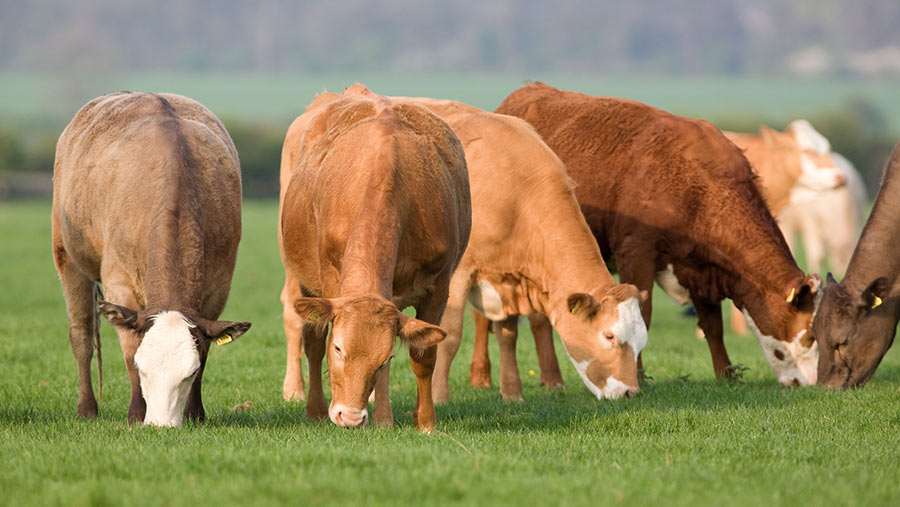UK food self sufficiency and sustainability possible
 © Tim Scrivener
© Tim Scrivener A new study suggests grass-fed beef and lamb could be the best meat for consumers as part of a sustainable diet.
The switch to regenerative farming practices would require the end of intensive, grain-fed livestock production and a return to mixed farming, where crops and livestock are grown in rotation to rebuild soil fertility naturally.
Less grain would be fed to livestock, resulting in a 75% decline in pork and chicken production, which is heavily reliant on cereals, maize and imported soy-based feed.
See also: How forage in pig diets benefits meat quality
Due to the importance of grazing livestock in sustainable farming systems, around the same amount of beef and lamb would be produced.
Milk production would fall by about 25%, because of the move to pasture-based systems.
Egg production would also decrease by 47%, mainly due to the reduction in the amount of cereals available to feed to livestock and the elimination of imported feed, such as soya.
That is according to modelling in a new report from the Sustainable Food Trust (SFT), Feeding Britain from the Ground Up (PDF), which was published on Wednesday 15 June.
Fruit and veg crops doubled
If the UK were to switch to a more sustainable farming methods, farmers would produce double the amount of fruit and vegetables and grain production would halve, due to a phase-out of chemical inputs and less land being used for intensive crop production.
However, production of UK-grown pulses (peas and beans) would double, from 0.9m ha to 1.9m ha.
The report says changing how we farm and what we eat could improve the nation’s health, protect nature, combat climate change and be more food secure as a nation.
It also suggests that in contrast to the land sparing agenda, farming can be done in harmony with nature.
In the scenario modelled, woodland cover would increase by close to a million hectares (+28%) and many more trees would be integrated into the farmed landscape and through agroforestry – in line with Climate Change Committee recommendations.
Stark choice
SFT chief executive Patrick Holden said the UK faces a choice on how to ensure its food security amid the current cost of living crisis, exacerbated by the war in Ukraine, which could soon cause global food shortages.
It could either “double down” on industrial farming to produce food that is bad for people’s health and the environment – or eat foods grown in harmony with nature across the UK, added Mr Holden, who farms an organic dairy farm, near Lampeter, west Wales.
The proposals would see the total area of land used for agricultural activity in the UK fall from currently 72% to 62%.
But the study authors argue that, under this modelling, the UK would still be able to produce enough food to maintain the same levels of self-sufficiency.
The report concedes, however, that shifting to sustainable farming practices will likely increase food prices, as is already being experienced in the energy sector.
To protect against food poverty and ensure access to high-quality food for lower income groups, government intervention will be essential, it states.
